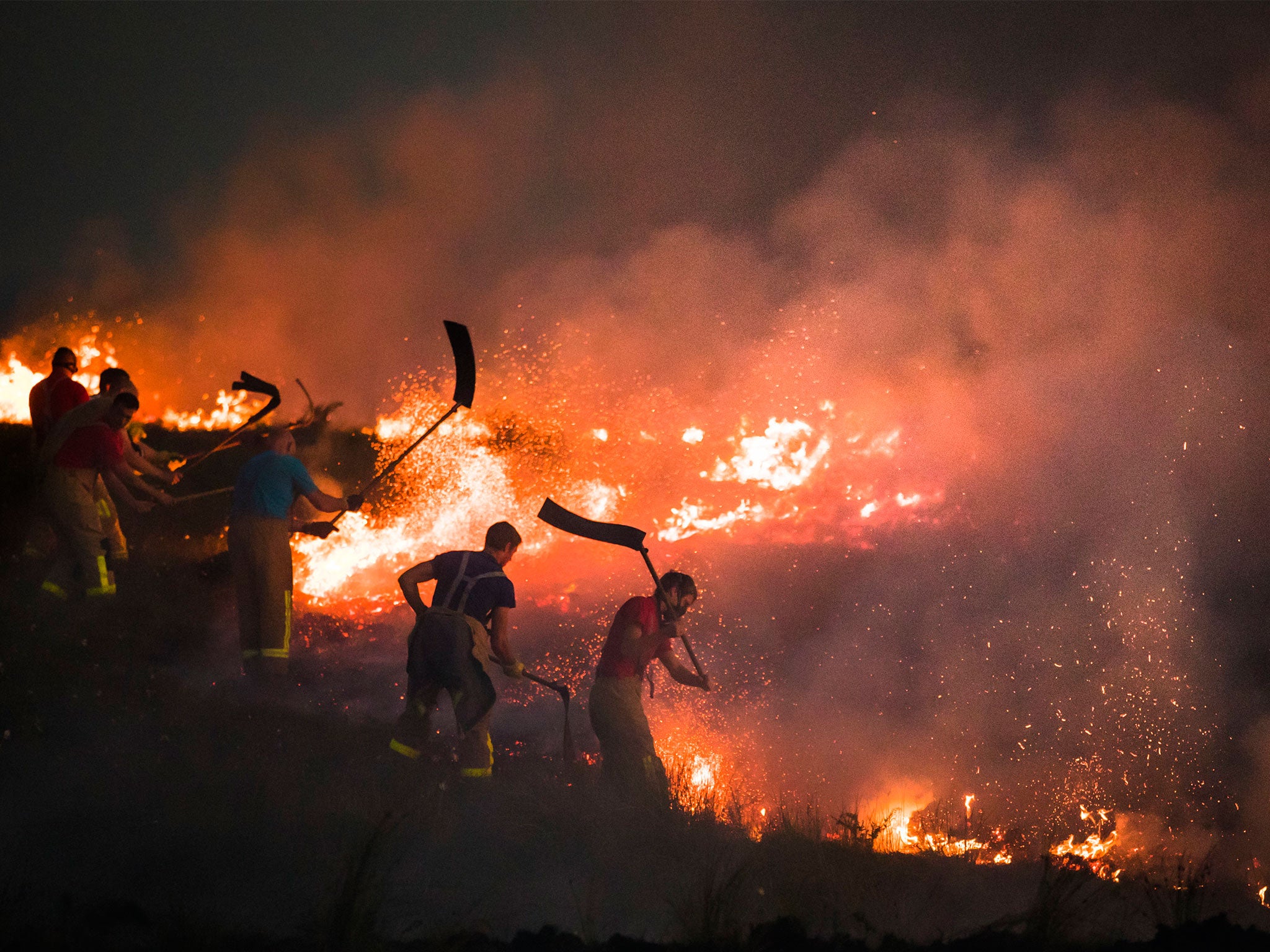Climate change to make UK summers more than 5C hotter by 2070, Met Office warns
Latest projections predict summer rainfall will fall by almost half, while sea levels swallow large expanses of coastline

Your support helps us to tell the story
From reproductive rights to climate change to Big Tech, The Independent is on the ground when the story is developing. Whether it's investigating the financials of Elon Musk's pro-Trump PAC or producing our latest documentary, 'The A Word', which shines a light on the American women fighting for reproductive rights, we know how important it is to parse out the facts from the messaging.
At such a critical moment in US history, we need reporters on the ground. Your donation allows us to keep sending journalists to speak to both sides of the story.
The Independent is trusted by Americans across the entire political spectrum. And unlike many other quality news outlets, we choose not to lock Americans out of our reporting and analysis with paywalls. We believe quality journalism should be available to everyone, paid for by those who can afford it.
Your support makes all the difference.Extreme heatwaves will scorch the UK as rising sea levels swallow large expanses of the coastline within just a few decades, experts have warned.
In the first major analysis of the nation’s changing climate for nearly a decade, government and Met Office scientists concluded that summer temperatures could shoot up by 5.4C by 2070 if fossil fuel pollution is not slashed.
Winters will also be considerably hotter, with average temperatures increasing by up to 4.2C.
The scientists outlined a far more extreme version of Britain’s climate in which this year's weeks-long heatwave becomes the norm while winter rainfall increases by more than a third.
Flooding will also be a major issue as sea levels around the country rise, and coastal communities will have to adapt rapidly or abandon homes to the rising tides.
Sea levels affecting London could rise by up to 1.15 metres by 2100 if climate-warming emissions continue to climb.
Even if emissions are cut in line with the Paris climate agreement to curb temperature rises to well below 2C above pre-industrial levels, sea levels could still be up to 70cm higher in the capital by 2100.
The scientists also predicted significant sea level rise in other major cities, with Edinburgh, Cardiff and Belfast all facing water rises of over 90 cm if greenhouse gas emissions continue unabated.
Even if the world manages to curb emissions in line with the Paris agreement, the UK's average yearly temperature could be up to 2.3C higher by 2100.
Launching the new report at London’s Science Museum, environment secretary Michael Gove said no-one could predict the future with absolute certainty.
However, in his first major speech on climate change, Mr Gove – who famously claimed the public has “had enough of experts” in relation to Brexit – backed the scientists behind the projections.
“In producing this first major update of climate projections for nearly 10 years, they have given governments, local authorities, land managers, national infrastructure bodies and other businesses an invaluable set of tools with which to assess the nature and scale of challenges, and take decisions accordingly,” he said.
Liz Parkes, the Environment Agency’s deputy director for climate change said the report reinforced the idea that there are “fewer places to hide” for policy makers working on global warming-related issues.
The environment secretary said the UK was already feeling climate-related extremes, including record wet winters, flooding and this year's heatwave, which was linked to devastating wildfires .
Mr Gove told the audience at the launch event at the Science Museum that officials were already factoring projected sea level rises into planning for flooding.
He noted a new long-term approach would be needed on dealing with flooding, warning “it will not always be possible to prevent every flood, we cannot build defences to protect every single building or reinforce every retreating coastline”.
To tackle droughts, he said new policies would help drive the construction of new water infrastructure such as reservoirs.
Farmers will receive payments to tackle climate change, and there will be new strategies to repair peatland, protect and create woodlands, and tackle emissions from food waste.
Mr Gove also announced that overseas, the UK will donate £13 million to restoring coastal mangroves in places like Jamaica and Colombia.
The new UK Climate Projections report is meant to guide the country’s efforts to curb and adapt to global warming, but environmental groups warned that many of the government’s own policies were undermining such plans.
“Climate change will have a devastating impact on the UK with more extreme weather, rising sea levels and scorching summers – so why isn’t the government doing far more to tackle this crisis?,” said Friends of the Earth climate campaigner Emi Murphy.
“With its relentless pursuit of fracking, airport expansion and road building, and lukewarm support for renewable energy, the government is failing to face up to the threat of catastrophic climate breakdown.
The projections were launched on the 10th anniversary of the UK’s Climate Change Act. This ground-breaking strategy, which commits the country to cutting greenhouse gas emissions by 80 per cent by 2050, has since been imitated by other nations from Sweden to New Zealand.
However, given the severity of climate change warnings that have emerged in recent years, and the particularly the Intergovernmental Panel on Climate Change’s latest report, experts have called for even tougher commitments from the UK.
Government climate advisers are currently examining what measures would be needed to ensure emissions are cut by effectively 100 per cent, bringing them to “net zero”, by the middle of the century.
Join our commenting forum
Join thought-provoking conversations, follow other Independent readers and see their replies
Comments